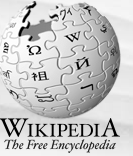
A recent article in
Education Week,
Embracing Wikipedia, by Matthew Shapiro, reports that in 2010, a
University of Washington study "found that 82 percent of students use Wikipedia in their course-related research." Yet many teachers and media specialists I have spoken with ban
Wikipedia completely, citing concerns over accuracy.
What if, as the
Education Week article suggests, we teach students HOW to use
Wikipedia rather than just banning it? What if we use it to teach them to become critical consumers of information and to evaluate content for such issues as "authorial bias"?
As Shapiro states in the article, when many of us went to school, our research revolved around the Readers' Guide to Periodical Literature, which had limited citations, the sources of which may or may not have been available in our print-based libraries. In 2010, our students are constantly inundated by information from multiple sources both print and digital, many only moments away from being live, including 24-hour news networks, blogs, ezines, YouTube, Twitter, and MMS messages that include images and video, as well as text.
Is it our job as teachers to hold back the tide, or to help our students develop the skills necessary to navigate the information technologies of their futures?


 most useful in the list is AppMiner, which helps you find MORE apps!
most useful in the list is AppMiner, which helps you find MORE apps! most useful in the list is AppMiner, which helps you find MORE apps!
most useful in the list is AppMiner, which helps you find MORE apps!



